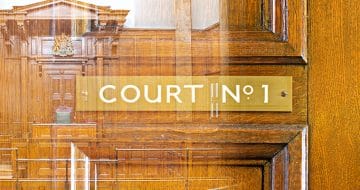New study looks at juror bias

Taking a secular oath or refusing to swear one can influence whether a jury believes you, a new study has found.
The research revealed a bias in jurors choosing to swear on the Bible who were found to be more likely to return a guilty verdict if the defendant takes a secular affirmation.
Both religious oaths and secular affirmations are equally legally binding and start with a pledge to tell “the truth, the whole truth and nothing but the truth”. However, the key difference is that the secular affirmation begins with “I solemnly, sincerely and truly declare and affirm,” whereas the religious version opens with “I swear by Almighty God”.
The research published in The British Journal of Psychology was a collaboration from researchers at Royal Holloway, Brunel University, and Bristol University. They conducted a mock trial where the 1,821 study participants were asked to act as jurors.
They uncovered three key findings, firstly that court witnesses who choose to swear an oath are more religious than those who choose the secular affirmation, but 20% of those swearing the oath did so because they believed it was the “more credible choice”.
The second finding was that a defendant’s choice between oath or affirmation can influence perceptions of their probable guilt, with those taking the affirmation perceived as slightly more likely to be guilty.
Finally, the research found that these biased perceptions of guilt were enough to influence the outcome of a trial. Participants that swore an oath were shown to discriminate against an affirming defendant, whereas participants that swore an affirmation showed no discernible bias against affirming or oath-swearing defendants.
The study has been highlighted by Humanists UK, a non-religious charity, as evidence that the religious oath should either be abolished or sworn in private.
Professor Ryan McKay, the study’s lead author, commented:
“If taking the oath is seen as a sign of credibility, this could lead to discrimination against defendants who are not willing to swear by God. An earlier proposal to abolish the oath in England and Wales was defeated when opponents argued that the oath strengthens the value of witnesses’ evidence. This is ironic, as it seems to acknowledge that swearing an oath may give an advantage in court.”
Professor McKay refers to a 2013 proposal to abolish the requirement for witnesses to swear an oath on any holy book, which was rejected by the Magistrates’ Association.



